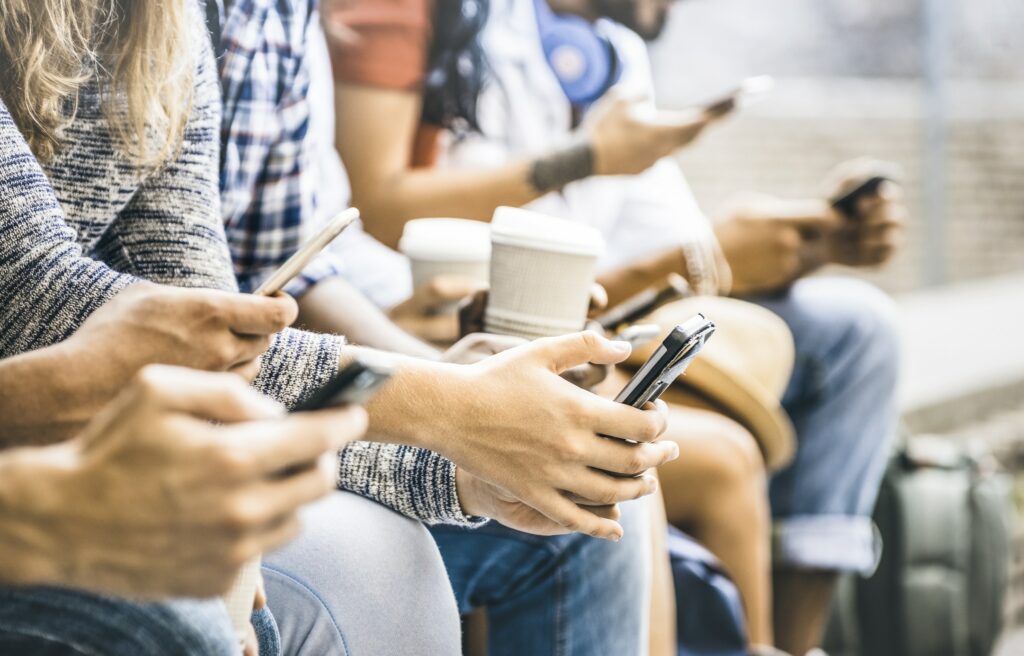In the spring of my freshman year of college, I decided to give up social media for Lent. I knew that my relationship with it wasn’t great—it interrupted my focus in lecture and kept me up with late night scrolling—but I wasn’t at all aware of how it affected my mental health.
In the beginning, I found myself reflexively unlocking my phone and flipping to where the apps used to sit. It would happen in the dining hall, in line for the printer, and in the awkward silence that develops between two strangers in the dorm elevator. I realized how much I relied on social media as both a distractor in uncomfortable social situations and as a way to avoid my responsibilities. Even more telling, I once felt genuinely angry during a fun trip with friends because I couldn’t post online and show everyone else I knew what a good time I was having. This frustration ultimately made it harder for me to enjoy the time we spent together during that trip, forcing me to confront how deep my reliance ran.
Over the course of those 40 days, I realized that knowing what everyone else was doing didn’t actually improve my quality of life, and that in reality I felt much better after taking a step back. No longer was I constantly comparing my life as a college freshman to that of others. No longer was I wasting rapidly cumulating minutes “Instagram stalking”; I gained back hours of my day.
Deteriorating Mental Health
The events that led up to my social media ban aren’t just a phenomenon in my life—about half of 18 to 29 year-olds claim to be online “almost constantly.” This state of hyper-connectedness can allow people to meet and connect instantly or stay updated on the lives of friends, but there are obvious downsides to being awash in the lives of others.
A staggering 1 in 5 people aged 18-25 experience mental illness. Studies have shown a link between the number of social media platforms used and the symptoms of anxiety and depression, as well as a link between time spent online and suicide risk factors. Ironically, excessive time spent on social media specifically has been linked to greater feelings of social isolation, which in turn can contribute to depression and poor sleep quality. These often compound into life-threatening illness such as suicidal depression. Suicide rates have continued to steadily rise and is unfortunately now the third leading cause of death for youth ages 10-24.
Communities Offline
In a broader sense, identifying and understanding the factors that underly mental illness is crucial to reduce the number of those affected. As an example, the PRC National Health Survey has found that 13.4% of adults consider their day to be “extremely” or “very stressful.” This statistic is telling because of the tightly woven relationship between stress and mental illnesses such as anxiety and obsessive-compulsive disorders. That’s one of the many reasons I’m glad to see our Community Health Needs Assessments taking a deeper dive into what affects the mental health and stress levels of a community, examining factors from help-seeking behavior to worry about paying rent.
As we continue to follow the lives of those around us via social media, now may also be the time to reach for greater awareness about how our friends and neighbors are really doing. I’m glad to be back online now but try to use apps as a means of connection, not competition. Social media can be a great tool for understanding the people around us, but it can also drag our mental health into feelings of inadequacy and isolation. So long as we remember to use the technology in its most helpful way possible, we rebuild both our own mental health and the critical human connections around us, fostering healthier communities both on and offline.
Sources and further reading:
About Three-in-Ten US Adults Say They Are ‘Almost Constantly’ Online
American Foundation for Suicide Prevention: Suicide Statistics
Social Media and Adolescents’ and Young Adults’ Mental Health


